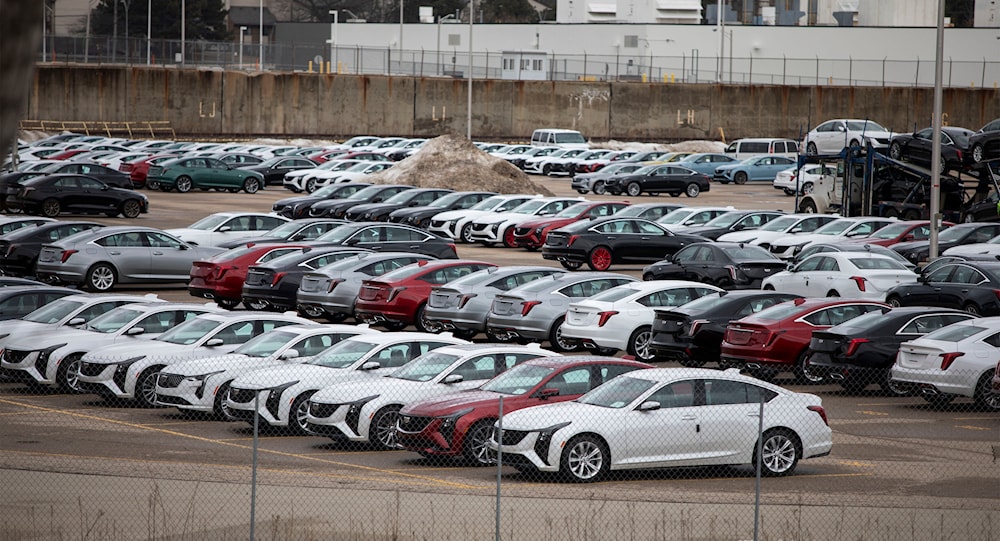Trump temporarily exempts automakers from tariffs on Canada, Mexico
White House press secretary Karoline Leavitt says the tariff exemption has been granted at the request of several companies to prevent them from facing economic disadvantages.
-

New General Motors vehicles are parked at the GM Lansing Grand River Assembly plant as the first day of President Donald Trump's 25 percent tariffs on goods from Canada and Mexico goes into effect March 4, 2025, in Lansing, Michigan. (AFP)
US President Donald Trump has temporarily exempted automakers from new tariffs on goods from Canada and Mexico, following warnings of economic disruption.
Trump imposed 25% tariffs on imports from the two largest US trading partners at midnight on Tuesday, sparking concerns over rising consumer prices. Retail giants warned that costs could increase almost immediately, contradicting Trump’s pledge to lower inflation.
However, after speaking with top executives from General Motors, Ford, and Stellantis, Trump approved a one-month exemption for all autos crossing between the US, Canada, and Mexico, White House press secretary Karoline Leavitt announced Wednesday.
Leavitt said the tariff exemption was granted "at the request of the companies" to prevent them from facing economic disadvantages.
Trump has argued that tariffs will strengthen US industry by pushing global firms to build factories domestically. However, Ford CEO Jim Farley previously warned that steep tariffs on Canada and Mexico could severely damage the US auto sector.
Following the exemption announcement, shares in major carmakers surged—GM rose 7.2%, Ford 5.8%, and Stellantis 9%—while the S&P 500 gained 1.1% on Wall Street.
A separate call between Trump and Canadian Prime Minister Justin Trudeau failed to yield significant progress. Trump later criticized Trudeau’s "weak border policies" on Truth Social, blaming them for security issues. Trudeau, in turn, publicly rebuked Trump’s tariffs, calling them "a very dumb thing to do."
Addressing Congress on Tuesday, Trump acknowledged the tariffs would cause some disruption but dismissed concerns, saying, "We’re OK with that." He blamed economic challenges on his predecessor, Joe Biden, despite inflation having significantly declined from its peak three years ago.
Economic, international fallout
The tariff escalation has already sparked concerns among major US retailers. Executives from companies such as Target and Best Buy have warned of rising consumer prices, particularly for electronics, furniture, and food products, as many of these goods are heavily imported from affected countries.
Target CEO Brian Cornell has specifically pointed out that fruit and vegetable prices will likely surge, given the high volume of produce sourced from Mexico.
Additionally, the automotive industry is bracing for higher production costs, potentially leading to increased vehicle prices for American consumers. Economic analysts from the Trade Foundation predict that these tariffs could reduce US GDP by 0.3%, with ripple effects throughout multiple industries, as reported by the NY Post.
Internationally, the response has been swift. Canada has announced retaliatory tariffs on $155 billion worth of US goods, while China is preparing to impose additional duties on key American agricultural exports, including pork, soy, and beef.
Read more: Trump offers tariff exemptions to firms relocating to US

 3 Min Read
3 Min Read








